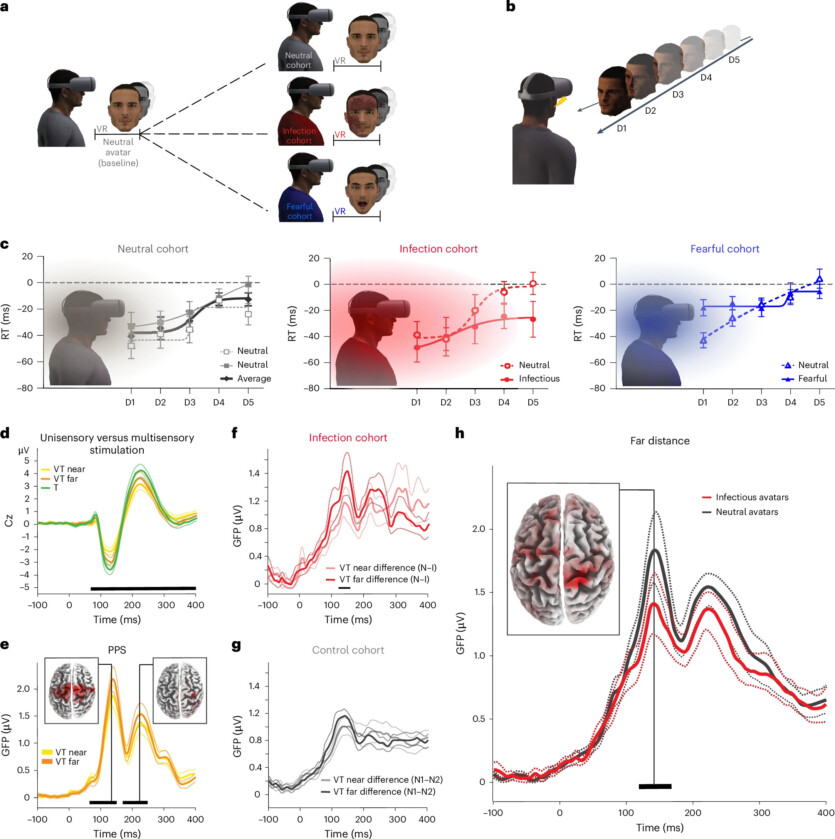
Swiss researchers have found that the human brain activates the first cells of the immune system even when approaching patients.
To obtain the relevant results, the researchers had to conduct brain scans and take blood tests from volunteers. Participants wore virtual reality glasses to see avatars of people with the rash, cough or other symptoms of the disease.
According to the co-author of the study, a neuroscientist at the University Hospital of Lausanne, Andrea Serino, the results demonstrate the brain’s ability to predict and choose the right response. The immune system responds to infections quite quickly, but it is not always able to do so quickly enough overcome serious diseases. It would be useful for the body to recognize the possibility of infection and organize a preventive response.
To study the ability of the human body to anticipate pathogen attacks, Serino and his colleagues provided volunteers with Google’s Oculus Rift headsets and showed them avatars of people with disease symptoms that moved closer and closer to the participants, but did not touch them. Some of the avatars showed signs of an infectious disease, while others belonging to the control group looked healthy.

Another group of volunteers was not shown the avatars, but received a flu shot that mimicked the effects of real pathogens. The researchers found that seeing an avatar of a person with symptoms of the disease activated the volunteers’ brain regions are associated with personal space. These areas are directly adjacent to the body. This was followed by a spike in activity in the «significance network» brain — a number of areas involved in recognizing and responding to important events, including threats.
This brain activity provoked increasing the number innate lymphoid cells, which are the first line of the body’s immune defense. The concentration of these cells was higher in people who were shown avatars of patients. The immune activity of participants who were approached by infectious avatars was similar to that of participants who received the flu vaccine.
Researchers say the results could help improve vaccines. Virtual reality can enhance the activation of immune cells that vaccines target. This can enhance the immune response to vaccines and therefore increase their effectiveness.
The results of the study are published in the journal Nature Neuroscience
Source: Nature

Spelling error report
The following text will be sent to our editors: